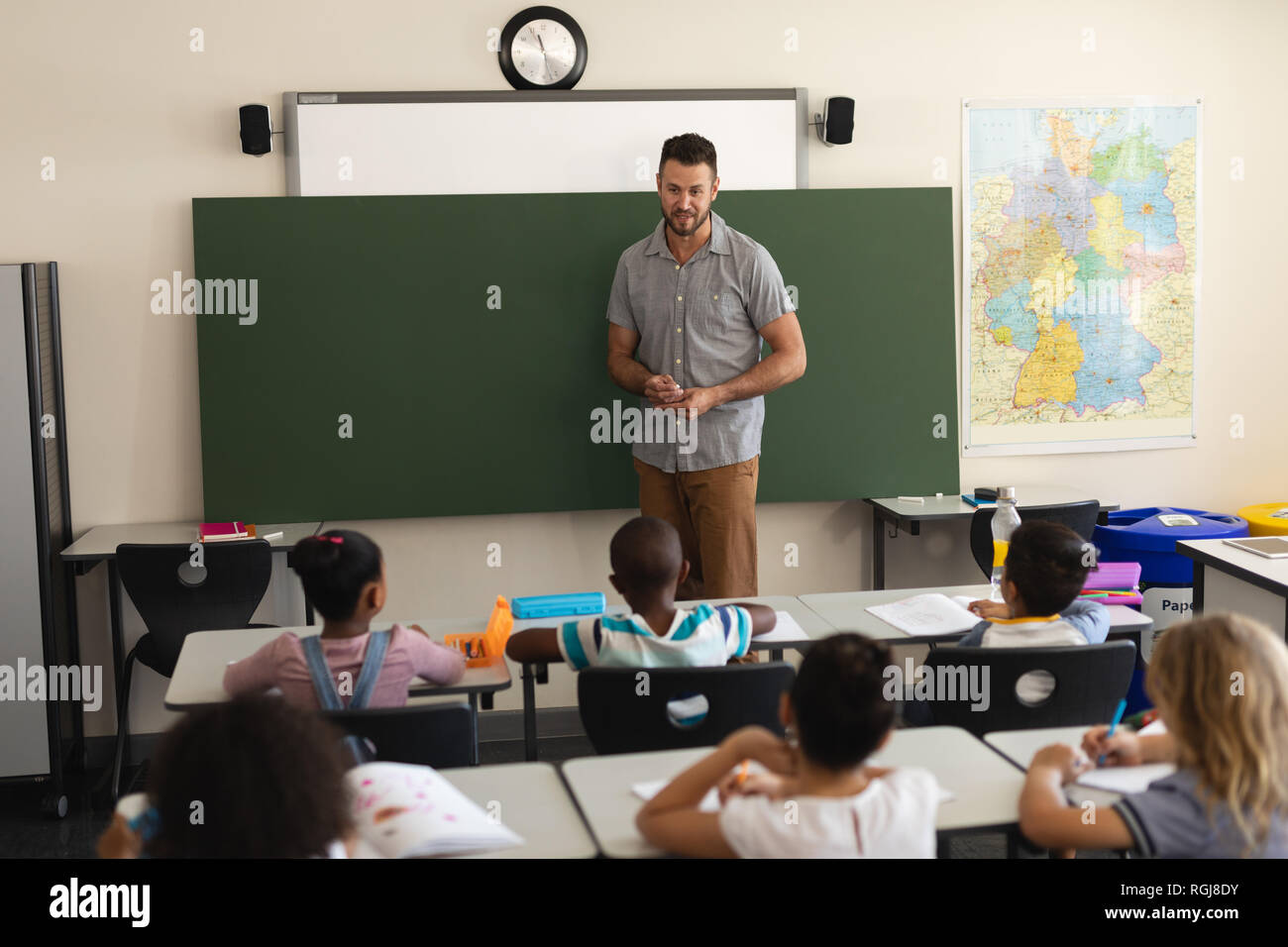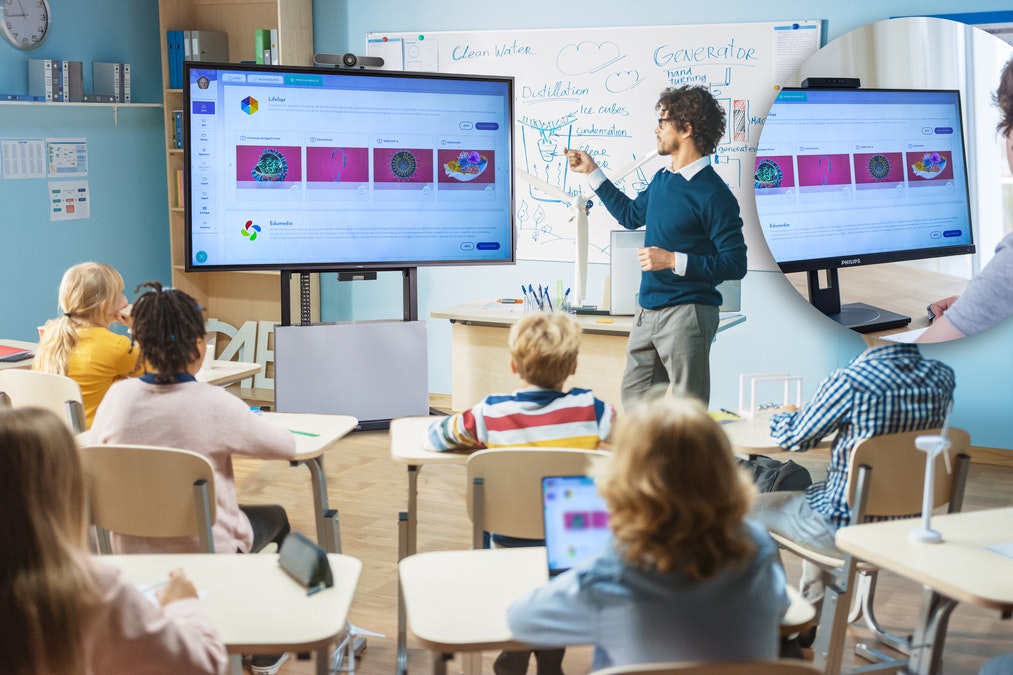Unlock Your Child’s Potential with Primary Science Tuition Singapore
Discover the Important Benefits of Comprehending Primary Scientific Research for Young Learners
The significance of key science education for young students prolongs far past simple expertise procurement; it works as a fundamental pillar in developing vital skills such as crucial reasoning, problem-solving, and creative thinking. Engaging with clinical concepts through interactive and inquiry-based activities not just grows inquisitiveness however likewise lays the groundwork for durable, certain students. As we check out these benefits additionally, it becomes clear that the effects for future scholastic and personal development are profound. What particular techniques can teachers utilize to take full advantage of these benefits?
Enhancing Essential Thinking Skills
Fostering vital thinking abilities in young students is vital for their cognitive advancement and future scholastic success. Crucial reasoning makes it possible for youngsters to assess details, examine proof, and make notified decisions, which are important abilities in today's information-rich society. By taking part in clinical query, young learners can enhance these abilities as they check out ideas with reasoning, monitoring, and testing.
In key scientific research education and learning, educators can assist in important thinking by urging pupils to ask questions, formulate hypotheses, and carry out experiments. This hands-on technique allows children to exercise analytic and create sensible reasoning skills. When trainees explore the residential properties of materials or the principles of activity, they learn to examine their findings critically and attract conclusions based on evidence.
Furthermore, conversations and joint tasks can promote crucial reasoning by giving opportunities for learners to verbalize their thoughts, obstacle presumptions, and consider diverse point of views. By creating an encouraging atmosphere that values inquiry and reflection, educators can nurture important believing abilities that equip young students to become independent thinkers and long-lasting students. Ultimately, improving these skills lays a robust foundation for their future academic endeavors and personal growth.
Promoting Curiosity and Exploration

Primary science education and learning offers an organized atmosphere where young students can explore various phenomena through hands-on experiments and monitorings. By enabling them to interact with products and participate in inquiry-based discovering, teachers develop chances for kids to create hypotheses, check their ideas, and attract verdicts. Such experiences support a feeling of wonder and exhilaration regarding science.

Building Confidence in Issue Addressing
Building self-confidence in analytical is an essential component of primary scientific research education and learning that encourages young students to come close to challenges with strength and creativity - primary science tuition Singapore. They establish crucial skills in essential reasoning and evaluation when children are encouraged to involve with scientific ideas via hands-on activities and inquiry-based knowing. This process not only boosts their understanding of clinical principles but likewise fosters a feeling of ownership over their understanding
To develop confidence, educators must produce a helpful setting where errors are considered as possibilities for growth as opposed to failings. This encourages students to take threats and check out various solutions to issues. By giving scaffolding and guidance, teachers can help my latest blog post trainees browse intricate jobs, progressively enhancing their independence in analytic scenarios.
Moreover, collective learning experiences, such as team tasks or experiments, can even more enhance students' self-confidence as they learn to articulate their ideas and pay attention to others' perspectives. These communications support social skills and strengthen the concept that problem-solving is typically a collective endeavor. Ultimately, cultivating confidence in analytical prepares young students for future academic obstacles and outfits them with the devices necessary for long-lasting learning.
Encouraging Creative Thinking and Innovation
In the realm of primary science education, motivating creative thinking and development is vital for growing a dynamic understanding atmosphere. By cultivating a culture where young learners can explore ideas and experiment easily, educators help students develop vital believing skills and a passion for discovery. Imagination in scientific research encourages kids to ask questions, design hypotheses, and involve in hands-on tasks that boost their imagination.
Incorporating open-ended projects and inquiry-based learning into the educational program allows pupils to reveal their distinct viewpoints and remedies. When entrusted with solving an issue learn the facts here now relevant to their atmosphere, students can conceptualize several strategies, leading to innovative results that display their creativity. This not just grows their understanding of scientific principles yet additionally instills a feeling of ownership over their knowing process.
Additionally, imaginative science education nurtures cooperation among peers, as trainees often share concepts and improve each other's understandings - primary science tuition Singapore. This joint spirit advertises not just technology but also crucial social skills. Thus, by focusing on creative thinking and technology in key science education and learning, we encourage young students to believe critically, welcome challenges, and imagine opportunities, laying a solid foundation for lifelong learning and exploration
Getting Ready For Future Understanding Challenges
Young learners' capability to navigate future knowing challenges depends upon a strong foundation in primary scientific research education and learning. This foundational understanding gears up students with crucial believing skills and a systematic technique to problem-solving, crucial for tackling complicated issues in an ever-evolving world. Primary science fosters inquiry-based learning, encouraging pupils to ask concerns, explore hypotheses, and participate in hands-on experiments.
As they establish these skills, students come to be skilled at examining information, identifying patterns, and drawing informed final thoughts. Such competencies are essential not just in clinical fields but likewise in math, modern technology, and design (STEM), where interdisciplinary knowledge is significantly important.
Additionally, primary science education cultivates a feeling of inquisitiveness and durability in young students, enabling them to watch difficulties as opportunities for growth. As they run into and get rid of obstacles in their scientific explorations, they develop confidence in their capability to introduce and adjust.
Eventually, a strong structure in main science not only prepares young students for academic quests yet likewise furnishes them with the devices needed for lifelong understanding and flexibility in a rapidly transforming global landscape. By spending in primary scientific research education and learning, we are This Site buying the future potential of our learners.
Final Thought
Recognizing primary science is vital for young students, as it fosters critical thinking, curiosity, and creativity. Involving with clinical ideas through hands-on experiments builds and boosts analytic capacities strength. This fundamental expertise not just furnishes students to evaluate data and identify patterns yet likewise nurtures an inquiry-based mindset. Inevitably, the benefits of key scientific research education prepare youngsters for future academic searches and impart lifelong learning habits necessary for flourishing in an ever-evolving world.
The value of primary science education for young learners expands far past plain understanding procurement; it offers as a fundamental pillar in establishing crucial skills such as vital thinking, problem-solving, and imagination. By developing a supportive atmosphere that values questions and representation, educators can nurture critical thinking abilities that empower young learners to become independent thinkers and long-lasting students. Thus, by focusing on creative thinking and development in primary scientific research education, we equip young learners to believe seriously, accept challenges, and picture possibilities, laying a strong foundation for lifelong learning and exploration.
Young students' capability to navigate future learning obstacles hinges on a solid foundation in primary scientific research education and learning.Comprehending primary scientific research is essential for young students, as it fosters important reasoning, interest, and creative thinking.